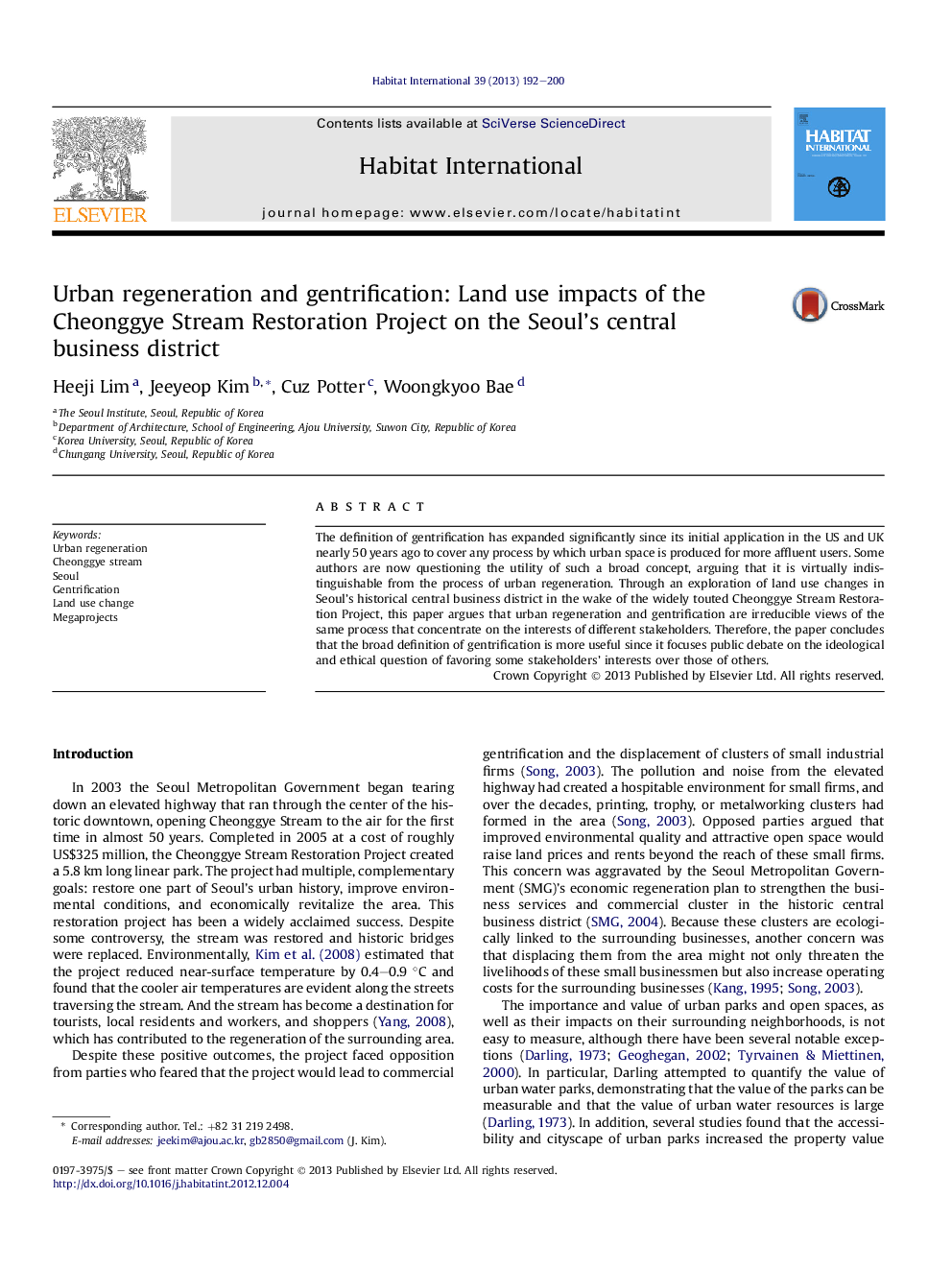| Article ID | Journal | Published Year | Pages | File Type |
|---|---|---|---|---|
| 1048238 | Habitat International | 2013 | 9 Pages |
The definition of gentrification has expanded significantly since its initial application in the US and UK nearly 50 years ago to cover any process by which urban space is produced for more affluent users. Some authors are now questioning the utility of such a broad concept, arguing that it is virtually indistinguishable from the process of urban regeneration. Through an exploration of land use changes in Seoul's historical central business district in the wake of the widely touted Cheonggye Stream Restoration Project, this paper argues that urban regeneration and gentrification are irreducible views of the same process that concentrate on the interests of different stakeholders. Therefore, the paper concludes that the broad definition of gentrification is more useful since it focuses public debate on the ideological and ethical question of favoring some stakeholders' interests over those of others.
► The Cheonggye Restoration Project stimulates land use changes for more affluent users. ► Most changes are higher uses resulting in the displacement of industrial activities. ► Urban regeneration and gentrification are irreducible views of the same process.
